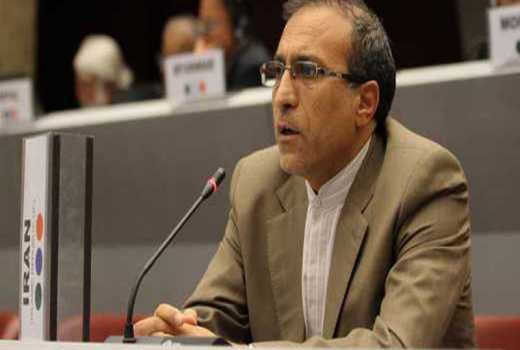×
The Standard e-Paper
Smart Minds Choose Us

Iran Ambassador to Kenya Dr Haji Farajvand has dismissed allegations that he was supporting terrorism activities over his role in the defense on the case of two nationals that were jailed over a terror case.
Dr Farajvand who was recently accused by section Kenya legislators of attempting to undermine justice system with intention of aiding two of his countrymen convicted of terrorism related charges said his at the embassy was to help ensure the Iranians had legal representation.